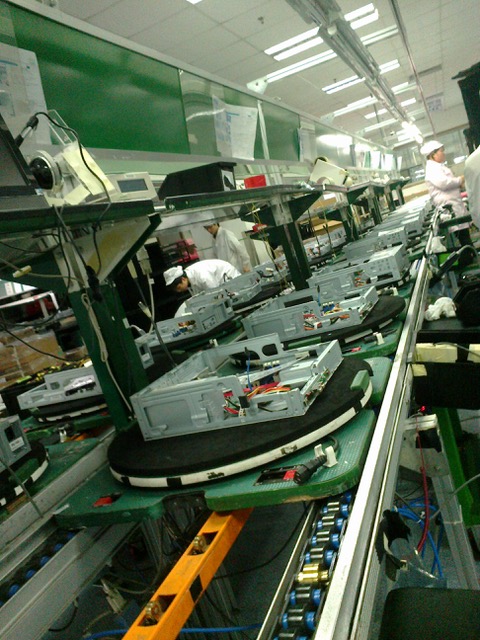The relocation of electronics production to the Global South, especially in Asia, with the aim of reducing labour costs, has generated in recent decades a favorable context for exploitation and modern slave labour.
Global value chains have become longer, more complex and more opaque, and many countries have chosen to turn a blind eye to this exploitation in order to continue attracting foreign capital and generating jobs. The main rights violations are: precarious working conditions such as very long working hours, job insecurity, health risks, forced labour, undignified wages and sometimes below the minimum wage established by law when there is one, and union persecution, among others.
The feminisation of less paid labour positions in these industries is another worrying factor. Approximately 80% of workers in electronics factories are women, often selected because they are considered more submissive and easier to control than men. This gender bias perpetuates a labour hierarchy that relegates women to poorly paid tasks and makes them “secondary” workers, exposed to harsher and more precarious conditions, where they are often on the lowest wage scale and without promotion options. They often also take on a large part of reproductive and care work, that is, taking care of their families and taking care of domestic tasks.

The lack of implementation of occupational safety regulations increases the risk of suffering from diseases. Exposure to toxic substances has serious impacts on the overall and reproductive health of female workers. This vulnerability is increased by the frequent use by factories of temporary contracts that depend on constant renewal, since this type of contract makes workers more susceptible to abuse and sexual harassment by their superiors under the threat of not being renewed. These abusive practices not only reflect clear gender discrimination, but also perpetuate a labour system that exploits the economic and social vulnerability of women in these contexts to maximize profits.
This context of relocation of electronics factories has also led to the migration between Asian countries to respond to the demand for labour in the electronic sector. Migrant workers, and especially women, are in a situation of great vulnerability, since they have often had to borrow in order to travel, and once they reach the destination, they find that the working conditions they had been promised are not the same, but worse. They often cannot give up because they do not have enough money to return, or because the company retains their passports, for example, trapping them in a dependency relationship.






